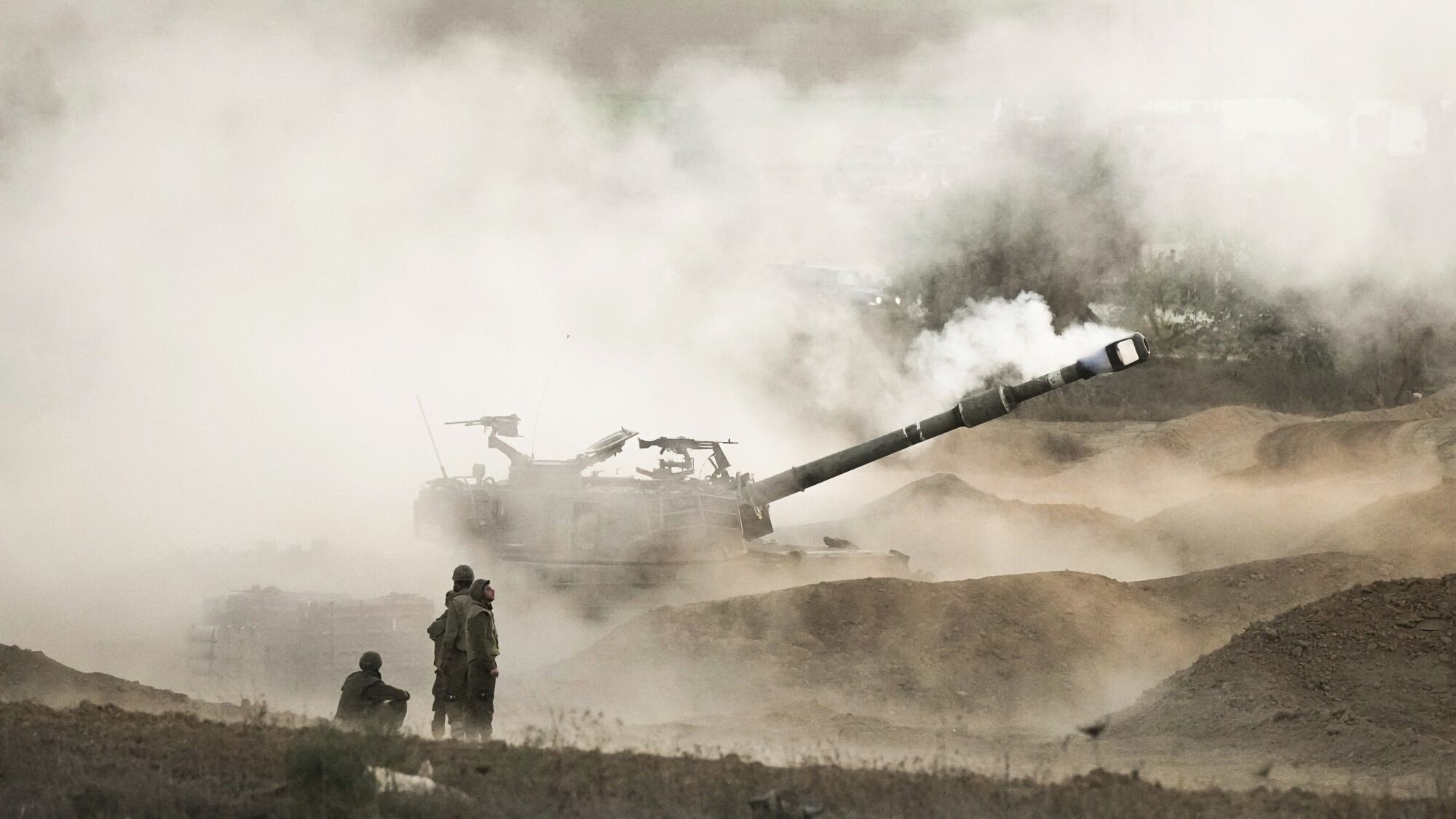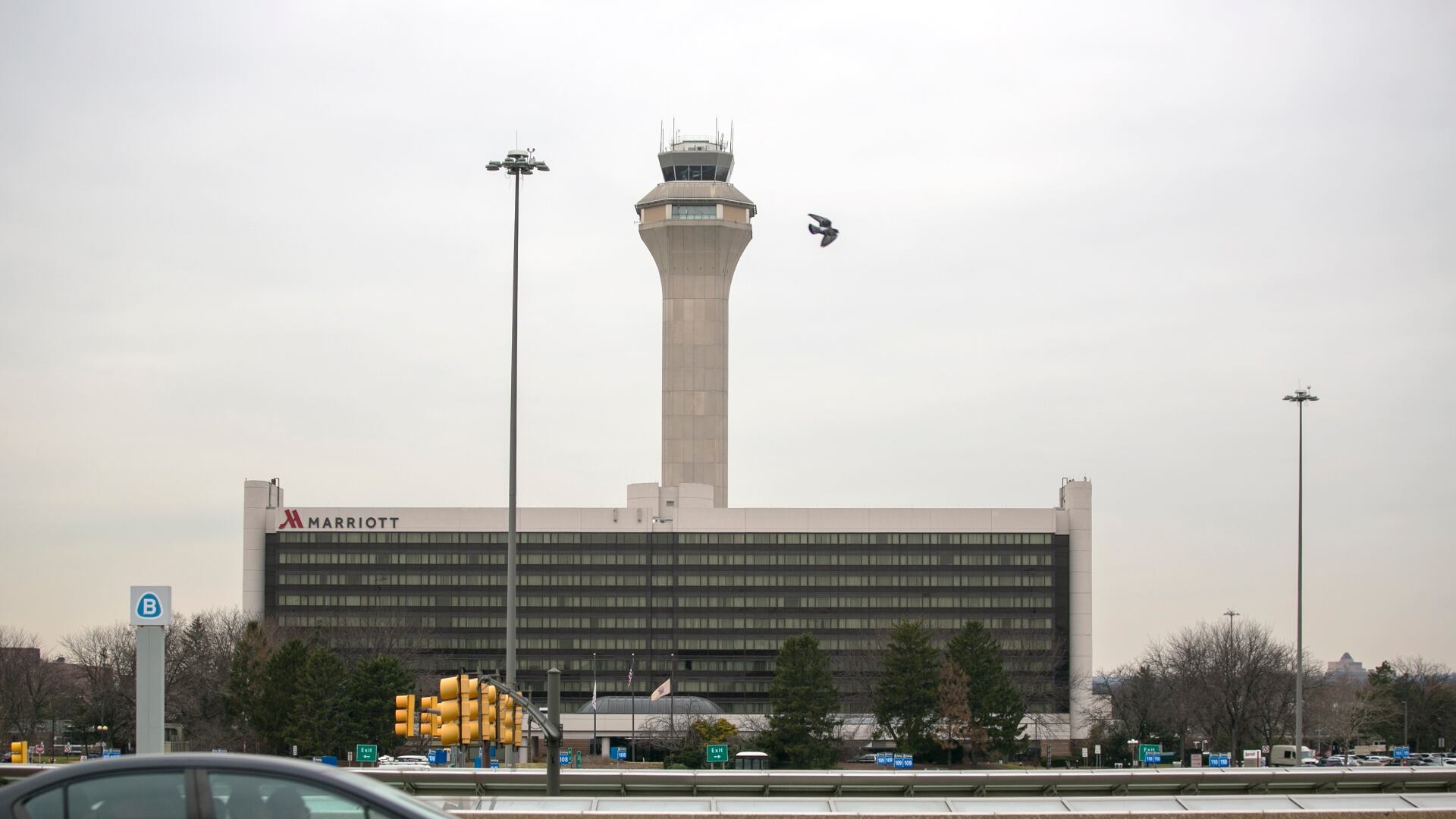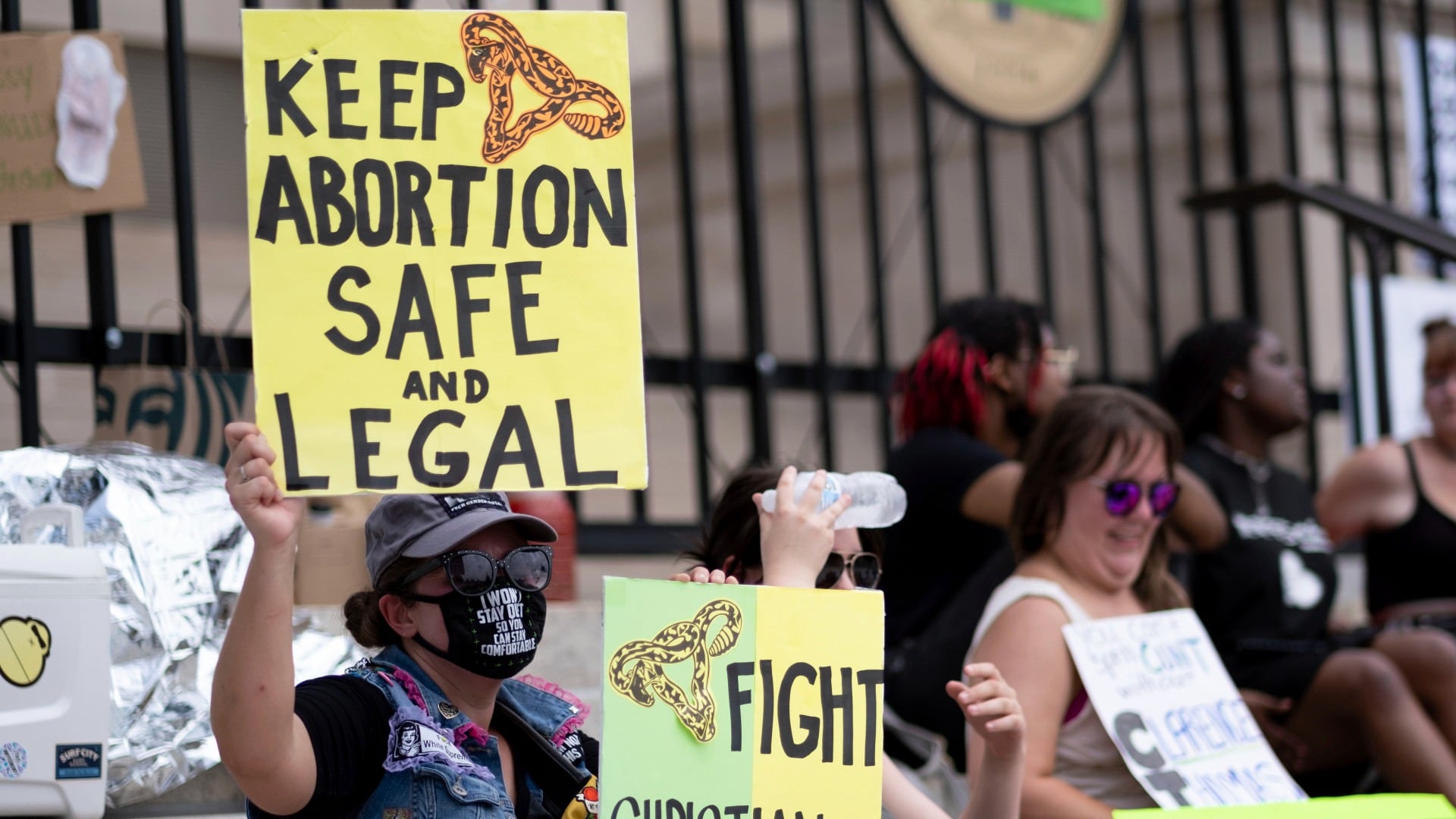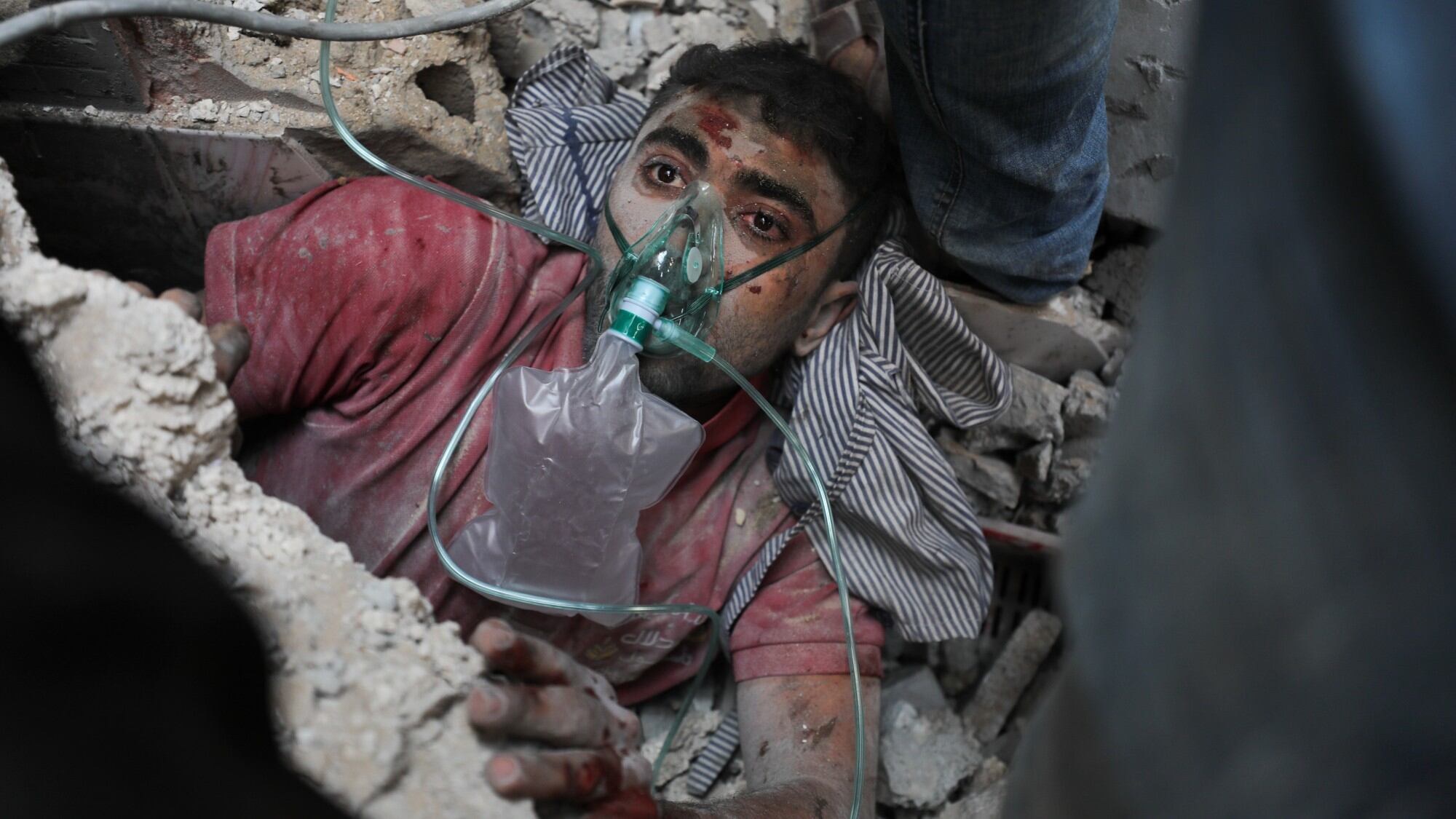By Patrick Orsagos and John Seewer
An Ohio grand jury declined to indict eight police officers who fired 94 shots in the death of Jayland Walker, a 25-year-old Black man who fired at least one round at officers during a car and foot chase last summer, the state's attorney general announced Monday.
Walker was shot 46 times in a hail of gunfire that lasted just under seven seconds and roiled yet another city amid heightened tensions with police over the killing of a Black man that started with a routine traffic stop.
Akron's mayor and police chief urged residents Monday to protest peacefully, acknowledging that many are angry with the shooting last June that Walker’s family has called brutal and senseless.
“Turn toward one other and not on each other,” said Mayor Daniel Horrigan.
Ohio Attorney General Dave Yost said the state's investigation found that Walker jumped out of his still-moving car, ran from police and ignored commands to stop and show his hands. Some of the officers first used Tasers to try and stop Walker, Yost said.
But Walker reached toward his waistband and raised a hand as officers were chasing, Yost said. The officers, not knowing Walker left his gun in the car, believed he was going to fire again, Yost said. He said it is critical to remember that Walker had “shot first.”
Responding with tears and frustration at a subsequent press conference, the Walker family and their supporters mourned the grand jury’s decision and called on Akron residents to protest loudly for justice and change. Democratic U.S. Rep. Emilia Sykes, of Akron, said she will ask the U.S. Justice Department to investigate “the patterns and practices of the Akron Police Department.”
“I still can’t comprehend how a young man has 46 bullet holes from officers and that is justified,” Sykes said while also urging people to honor Walker’s memory by protesting peacefully. “I ask you to remember the words of Jayland’s family by speaking up. But do so without violence.”
The family and the NAACP previously have called on the Justice Department to open a federal civil rights investigation.
Bobby DiCello, an attorney for Walker's family, criticized the state's investigation, saying police gunned down Walker execution-style. Paige White, another attorney for the family, said the investigation was skewed in favor of the police and that “Jayland didn’t have a chance.”
“Akron Police Department, when you call for peace, when you call for no destruction, when you call for respect — where was your respect for Jayland?” White said.
The state investigation said police first saw Walker driving with a broken taillight and a broken light on his rear license plate, but they decided not to follow him. They saw him 10 minutes later at the same intersection and became suspicious, Yost said.
Police said Walker refused to stop and then fired a shot from his car 40 seconds into the pursuit.
Officers chased the car on a freeway and city streets until Walker bailed from the still-moving vehicle and ran into a parking lot where he was killed while wearing a ski mask, body cam video showed. Authorities said he represented a “deadly threat.” A handgun, a loaded magazine and a wedding ring were found on the driver’s seat of his car.
Police union officials said the officers thought there was an immediate threat of serious harm and that their actions were in line with their training and protocols.
Dash-cam video from a police cruiser captured images of Walker firing the gun from his car, said Anthony Pierson, an assistant state attorney general. Walker had no criminal history and had never fired a gun until he went to a shooting range with a friend in early June, Pierson said.
At the time of the shooting, Walker was grieving his fiancée’s recent death, and his family and Pierson said his actions that night were out of character.
“That night he encountered the police he wasn’t acting himself,” Pierson said. “By all accounts he was a good person, a good man.”
Authorities checked Walker’s online history and found in the weeks before his death searches for phrases including “drinking bleach” and “quickest ways to die,” according to an investigative report released Monday.
The report also contained information from a Euclid, Ohio, police captain who told investigators that Walker’s best friend interviewed for a police job in that city days after Walker’s death and suggested it had been “suicide by cop.”
But when interviewed by investigators, the friend strongly disputed that, telling detectives that Walker was distraught but never mentioned suicide.
Pierson was asked at the news conference if Walker’s death could have been suicide. He declined to speculate about Walker’s state of mind but said there was no direct evidence he was suicidal.
Akron Police Chief Steve Mylett said Monday that the city will begin an internal investigation into the shooting, but he would not release the names of the eight officers because of ongoing threats against them.
The officers, who initially were placed on leave, will remain on administrative duties. None of the eight officers appear to have been disciplined for any previous use of force incidences, according to investigation records released by the state.
While the grand jury’s decision shows no crime was committed by the officers, "in no way does that take away from the tragedy of June 27,” Mylett said.
Attorneys for the eight officers released a statement calling the incident a tragedy for the entire community, including Walker's family and all of the officers who were involved. “A split-second decision to use lethal force is one that every police officer hopes he or she will never be forced to make,” the statement said.
A county medical officer said the autopsy found no illegal drugs or alcohol were detected in Walker's body.
After taking over the investigation last summer at the request of Akron police, prosecutors with the Ohio attorney general’s office presented the case to the grand jury.
City set up a designated protest zone downtown outside city hall, where plywood covered the first-floor windows. Temporary fencing circled the county courthouse and many businesses boarded up their windows.
But hours after the grand jury's decision, the protest zone was almost entirely empty on a cold, windy night mixed with snow flurries and rain.
The city's school district canceled classes on Tuesday in the wake of the grand jury announcement.
Less than 24 hours before the chase, police in neighboring New Franklin Township had tried to stop a car matching Walker’s, also for unspecified minor equipment violations. A supervisor there called off the pursuit when the car crossed the township’s border with Akron.
___
Seewer reported from Toledo. Associated Press writers Julie Carr Smyth and Samantha Hendrickson in Columbus, Ohio and Michael Rubinkam in Allentown, Pennsylvania, contributed.











